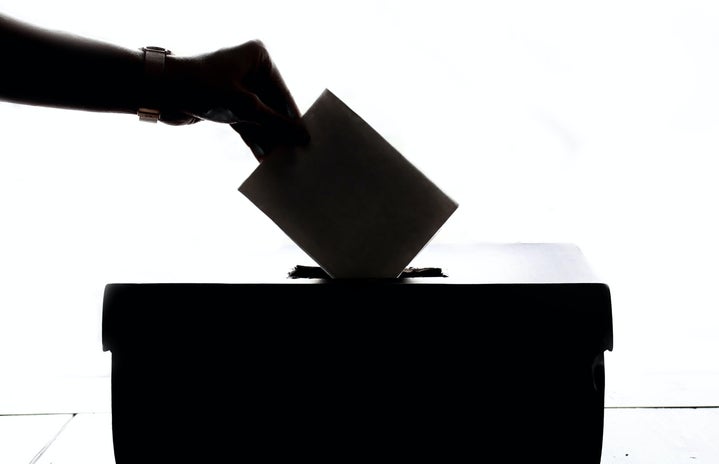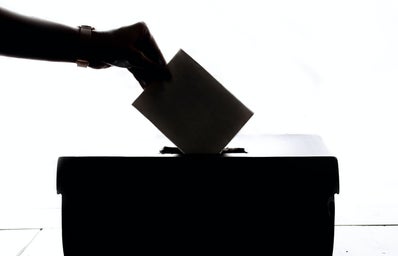The Indigenous Peoples of Australia have been battling for their rightful land since the unlawful British Invasion of 1788 led by James Cook. British settlement and colonialism in so-called Australia have had an immense impact on Aboriginal and Torres Strait Islander peoples – the Stolen Generations and higher Aboriginal deaths in custody are only a couple of systematic disadvantages faced by the Indigenous community over the centuries – which continue today.
What is the Indigenous Voice referendum?
The Indigenous Voice referendum was held on October 14, 2023. Essentially, voters were asked whether they approve of the voice of Indigenous peoples to be formally recognised by the Constitution. Ballot papers read as follows:
A Proposed Law: To alter the Constitution to recognise the First Peoples of Australia by establishing an Aboriginal and Torres Strait Islander Voice. Do you approve this proposed alteration?
The Result and Impact
The double majority voting system in Australia means that unsuccess occurs if more than half of total national votes, and more than half of electors in at least three states, do not vote in favour of the amendment.
This, unfortunately, was the case.
On October 14, 75% of Australians voted ‘No’.
The law, had it been approved, would have seen the creation of a body of representation of the Aboriginal and Torres Strait Islander Voice with the ability to make representations to the Australian Parliament and government on matters relating to their community. The body was to be made up of members chosen by Aboriginal and Torres Strait Islander communities from each state, territory, and Torres Strait Island, with representation from all genders. Fundamentally, the wishes of these communities would have been heard and addressed – which seems vital and just, given White Australia has had this privilege without having to battle for it.
Talking to The Guardian, Yes23 Campaigner Jade Ritchie illustrated the disappointment felt by supporters of the amendment across Australia, at those who voted no – and consequently allowed the continuation of ‘disenfranchisement of a whole portion of our community’. She goes on, ‘Government after government try to address these issues and here we are, with a very moderate and fair proposal and a practical way forward, and it’s not been accepted.’
Australian Prime Minister Anthony Albanese recognised that the result ‘will be very hard to bear’ and claims the result is not what he hoped for, but he respects the democratic way it was concluded.
“The Voice referendum addressed an issue that’s addressing was well overdue”
Why is Australia opposing this change?
This question is difficult to answer, because upon the announcement of the referendum back in March, polls illustrated that Australians were open and supportive of the idea. However, it is arguably the propaganda and spreading of misinformation since then, that has caused the referendum’s unsuccess. The media began planting seeds of doubt in the public’s minds’, suggesting that if successful, the Aboriginal and Torres Strait Islander Voice would do grotesque things in practice. Racism, then, is at the heart of this failure.
Additionally, there was definitely confusion and lack of clarity on what the Voice was going to look like between all voters, so the slogan “if you don’t know, vote no” was pushed into spaces of uncertainty, and many Australians therefore voted no.
Australia’s Voice Referendum and Brexit: How similar are they?
There are certainly parallels between the Australian and UK referendums, not only in the fact that they both enlarged divisions and oppositions but also in their potentially long-lasting impacts.
Politically, both referendums have affected trust and confidence in government, particularly amongst those Brits who voted ‘Stay’ and Aussies who voted ‘Yes’. In the UK, we are still dealing with Brexit’s economic impact years later, with challenges including the new need for visas when travelling around Europe. In terms of Australia, it is extremely disappointing for the Indigenous community to be hopeful and then let down so quickly; it is this sense of false promises that divides the people and increases distrust in those in power. There is little hope that the present divisions will be reconciled any time soon.
Ultimately, both referendums differ in subject matter, but they have both been negatively impactful. The Voice referendum addressed an issue whose addressing was well overdue, but the public’s negative impressions from the media fuelled the failure of the vote, which has been incredibly hard for many people. One can only hope that a referendum of this sort will be more successful next time, so a more compassionate nation can come together to close divisions that stem from centuries ago.

